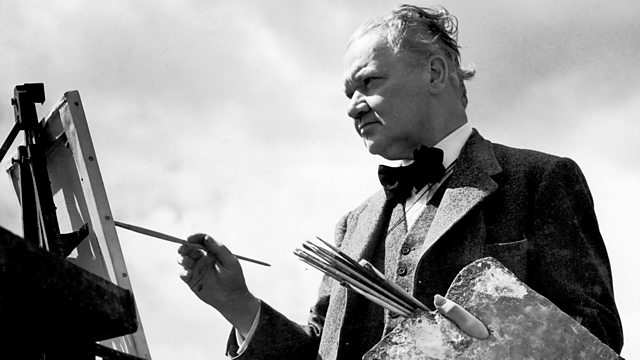Paths of Glory
Allan Little reflects on CRW Nevinson's 1917 painting Paths of Glory, considering its lasting power and the role of art both in recruiting soldiers and in denouncing war.
How great artists and thinkers responded to the First World War in individual works of art
1. 大象传媒 Correspondent Allan Little reflects on C.R.W.Nevinson's great 1917 painting, Paths of Glory
C.R.W.Nevinson's painting, Paths of Glory, is a distant cry from the rallying recruitment posters which appeared at the start of the war. It depicts the bloated corpses of two dead soldiers, stretched out in the mud, against a backdrop of tangled barbed wire, somewhere on the Western Front.
Unsuprisingly, it was censored at the time.
Perhaps part of its shock value was in its title. In his Elegy Written in a Country Churchyard, the 18th century poet, Thomas Gray, had declared "the Paths of Glory lead but to the grave", but in Nevinson's painting, the two fallen soldiers are far from the comfort even of a grave in an English country churchyard, and, indeed, from any decent burial at all.
In his many years as a 大象传媒 Special Correspondent, Allan Little has witnessed some shocking scenes of war and has also reflected on the depiction of war in news footage and photography as well as in the works of contemporary war artists.
He considers the continuing power of Nevinson's painting and the role of art both in recruiting soldiers and in denouncing war.
Producer; Beaty Rubens.
Last on
More episodes
Previous
You are at the first episode
Broadcast
- Mon 23 Jun 2014 22:45大象传媒 Radio 3
Death in Trieste
Watch: My Deaf World
The Book that Changed Me
Five figures from the arts and science introduce books that changed their lives and work.
Podcast
-
![]()
The Essay
Essays from leading writers on arts, history, philosophy, science, religion and beyond.





